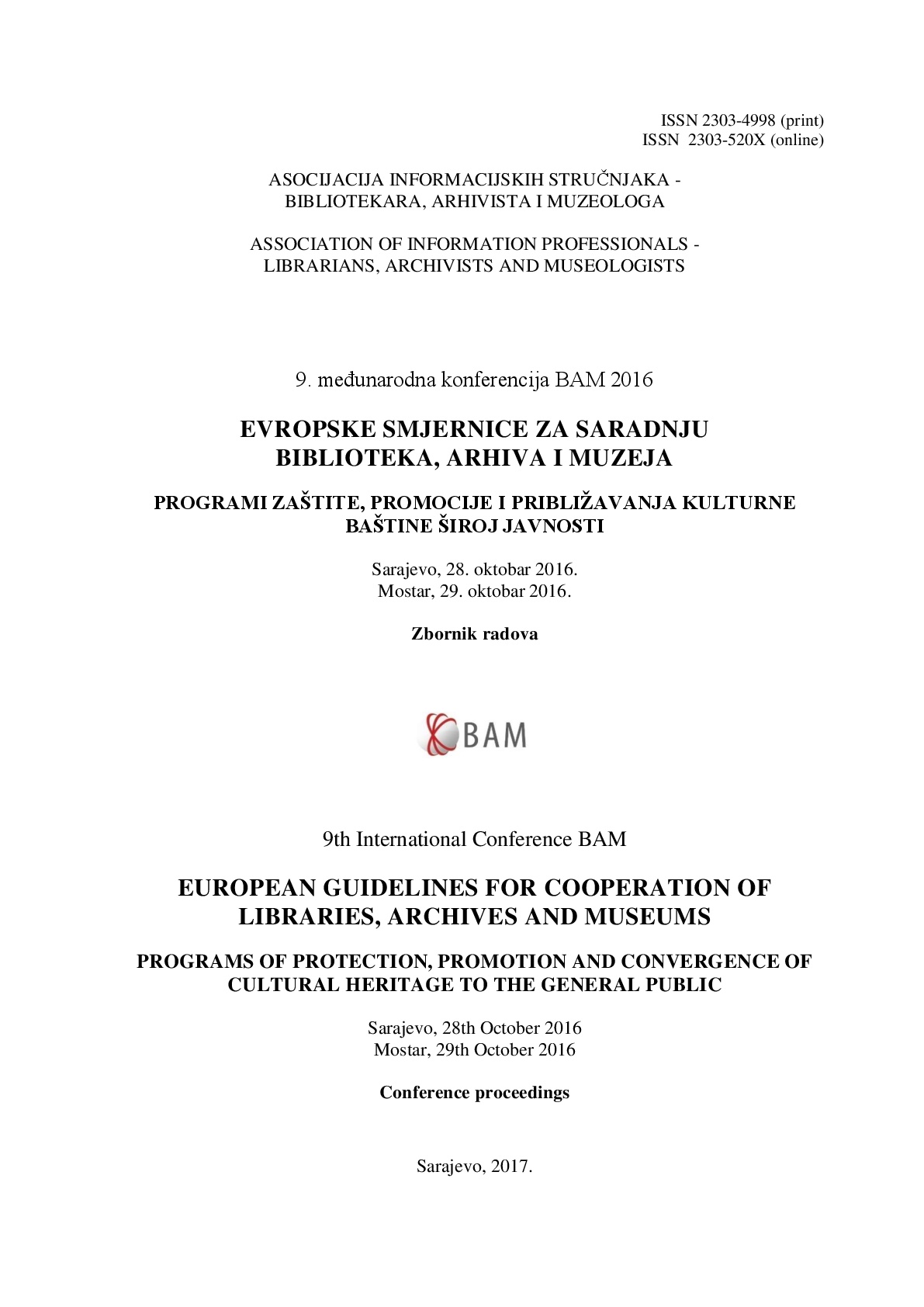Nacionalni simboli, kulturna memorija i identiteti u promociji kulturne baštine Balkana
National Symbols and Cultural Memory and Identities in the Cultural Heritage for the Promotions of Balkans
Author(s): Daniela NikolovaSubject(s): Museology & Heritage Studies, Government/Political systems, 19th Century, Inter-Ethnic Relations, Politics and Identity, Identity of Collectives
Published by: Asocijacija informacijskih stručnjaka – bibliotekara, arhivista i muzeologa
Keywords: national symbols; memory and identities;
Summary/Abstract: Questions of nation/nationalism, national identity, ethnic identity/ethnicity, in the last three decades are the subject of research and scientific analysis of many scientific disciplines (history, ethnology, anthropology, sociology). Any attempt to research in these areas is acoompanied by certain difficulties due to the lack of precision and definition of the phenomenon and is widely used conceptual apparatus. The term identity is only a popular expression. What interests us in this case, is thinking about the national/ethnic/cultural identity/in the context of global/local communities, and their impact on history, politics and mythology. National identity is based on the decision of an individual or group for belonging to a nation. If a national identity is seen as a cultural category, not a biological determination, that was created for historical, political and social events, then identity creation, development or transformation can be considered separately from these phenomena. Identity is defined as a sense of belonging that allows people to understand and categorize the world in which they live or through their own identity human beings define their relations with the world. Identity is a category that is created and whose creation is related to the specific impacts of the company and/or powerful groups. In determining the identity of the utmost importance is the cultural memory that derives from the ereryday-communicative memory. Balkan, one of the most diverse regions in Europe, is a source of cultural wealth, religion, nation thousands of years of rich history. Over the centuries the region belonged to different empires and it was the center of interest of imperial rulers. Museums should play a dominant role in helping companies for better understanding of the cultural and historical heritage. They should be an important part of discussions on the historical and political issues and explain the different cultures in the Balkans through its collections.
Journal: Zbornik Radova – Asocijacija informacijskih stručnjaka, bibliotekara, arhivista i muzeologa (BAM)
- Issue Year: 2017
- Issue No: 09
- Page Range: 11-15
- Page Count: 5
- Language: Bosnian

